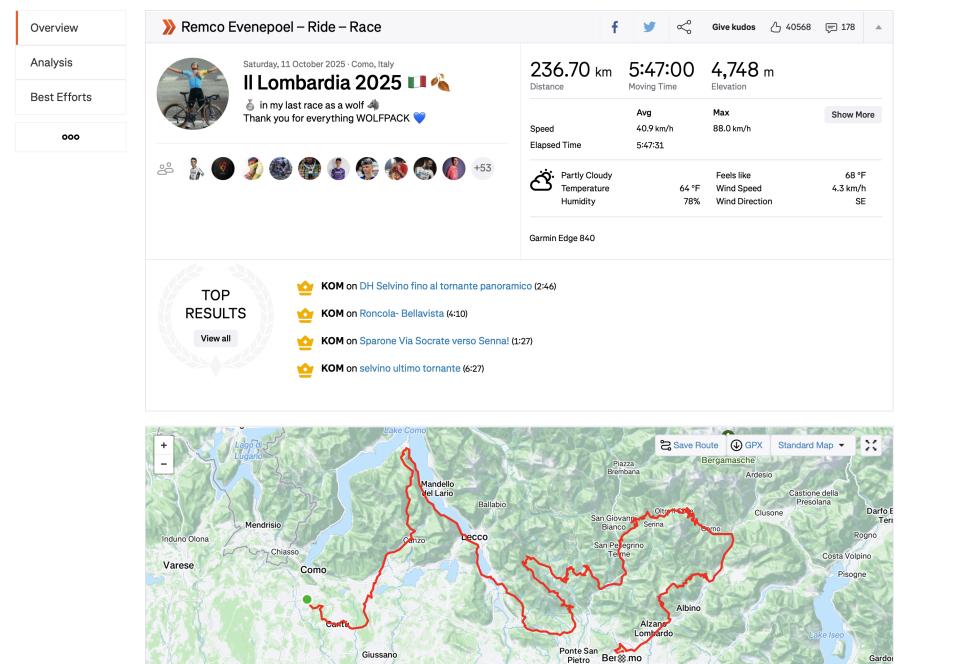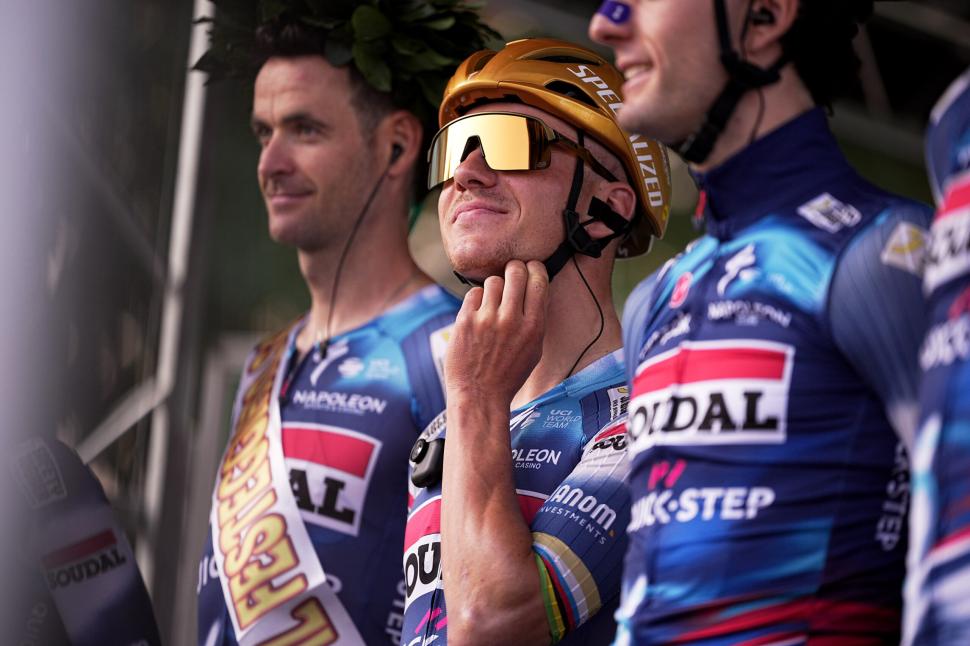Remco Evenepoel finished second at the 2025 edition of Il Lombardia, 1 minute and 38 seconds behind Tadej Pogačar. While the spotlight naturally falls on the winner, Evenepoel’s ride was remarkable for other reasons. Five years ago, at the same race, his career almost ended.
In 2020, Evenepoel suffered a life-threatening crash at Il Lombardia, fracturing his pelvis and bruising his lung after hitting a stone wall and falling into a ravine on the Muro di Sormano – one of the fastest and most technical descents on the professional circuit. The crash sidelined him for nine months and left both physical and surely psychological scars.
Returning to racing in 2021, Evenepoel faced the challenge of rebuilding both physically and mentally. The psychological impact of a crash is often underestimated, but trauma of this magnitude can shake an athlete’s confidence and sense of identity. Reflecting on that time, Evenepoel said:
“Really, in my first year and a half with the pros, until that fall in Lombardy, I was doing really well… after that fall everything was different. Mentally it was a huge switch….I had to be patient and wait for the best Remco to come back. That made me stressed. I wasn’t the Remco I wanted to be. I wasn’t myself”.
It’s easy to forget that despite superhuman performances professional cyclists are not machines, they’re human; with that comes the psychological battle that many athletes inevitably have to face at some point during their careers after a major injury, struggling to reconnect with their sense of self that is built around consistent performance and control. Even when the body heals, uncertainty can linger, and confidence doesn’t automatically return with medical clearance, highlighting the need for deliberate psychological work alongside physical rehabilitation.
For Evenepoel, the process of recovery went beyond training hours and rehab. In 2023, after finishing ninth at Il Lombardia, he revisited the site of his crash. In a video shared on his YouTube channel, he explained that he wanted to reflect on one of the most difficult moments in his life. It brings “a lot of bad memories, and a lot of pain”, he admitted, but “I think it’s good to close the chapter and the story about this crash, and the bad memories I had in the past… just to give it a place and recover 100 percent”.
The act of returning to the scene, and confronting what happened rather than avoiding it, is a powerful example of psychological recovery. This is often described as making space for experiences rather than trying to suppress them. Athletes who push emotions away often find those feelings return stronger, but by acknowledging them, the hold they have begins to loosen.
When asked by his wife what emotions he felt standing at the site, Evenepoel replied:
“I’m not going to say that I’m really emotional because I could already give it a place.”
In other words, he had processed it. The memories were still there, but they no longer controlled him. The ability to confront, accept and move forward is at the heart of mental resilience, and perhaps explains why he descended faster than anyone else this weekend.
Crashing is part of cycling at every level, and fear or hesitation are normal responses.
From a psychological perspective, this makes sense. Our brains are wired to constantly scan for danger, a threat-detection system that served us well in our evolutionary past. After a crash, this system may become hyper-sensitive, leading to overthinking, predicting worst-case scenarios and avoidance behaviours.
 Remco Evenepoel Lombardia Selvino descent KoM 2025 (credit: Strava)
Remco Evenepoel Lombardia Selvino descent KoM 2025 (credit: Strava)
At Il Lombardia this weekend, Evenepoel posted the fastest time down the 10.42km Selvino descent, earning the KoM on Strava – ten seconds faster than the race winner Pogačar. It was a performance that reflected not just physical form, but a complete psychological comeback.
Evenepoel’s journey is a reminder that resilience isn’t something athletes are born with – it’s built through experience. By engaging with adversity rather than avoiding it, athletes can find meaning, confidence and growth on the other side of trauma. For those still navigating the aftermath of crashes or setbacks, his story is proof that full recovery isn’t only physical, but psychological too.

